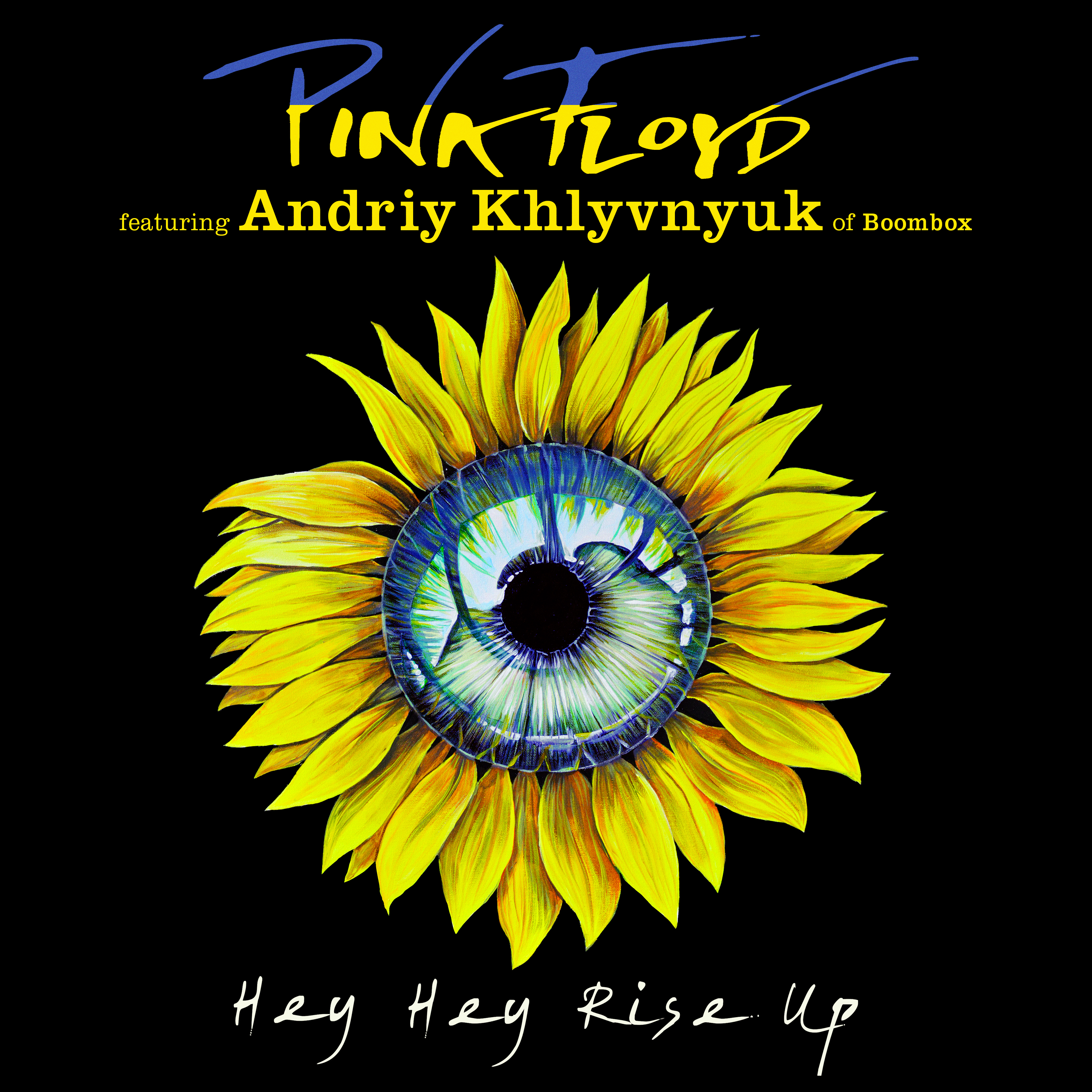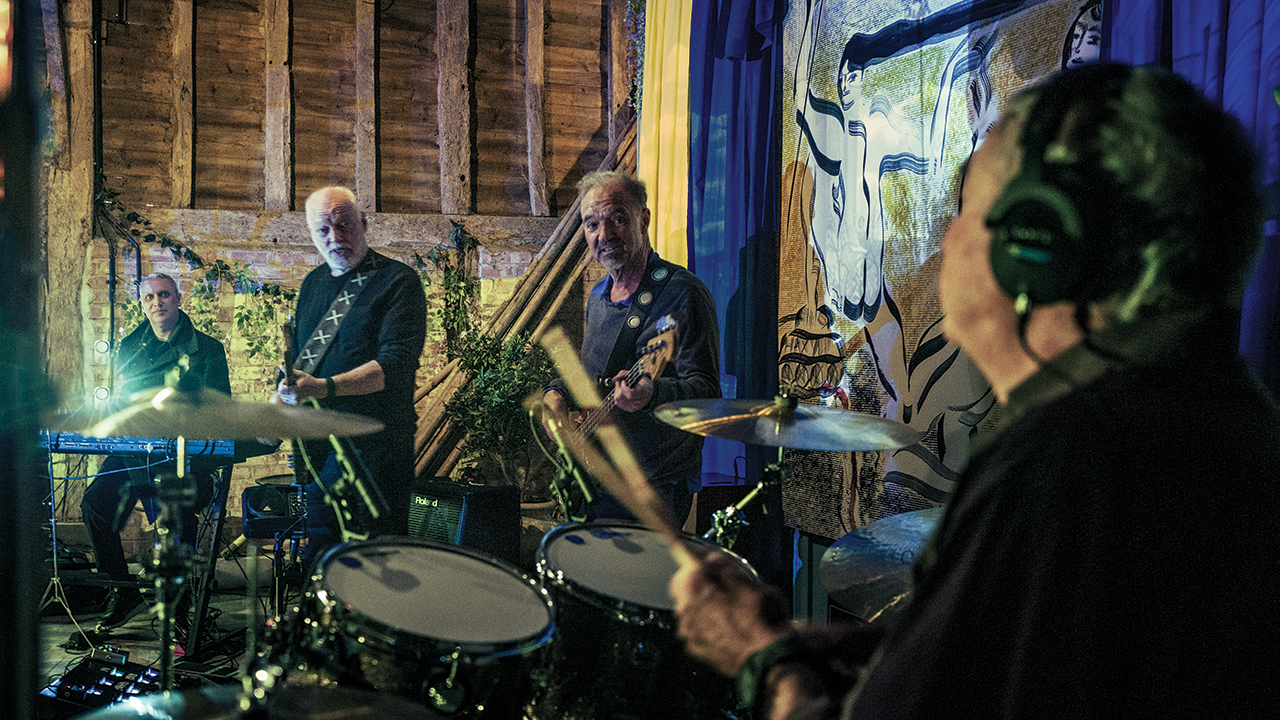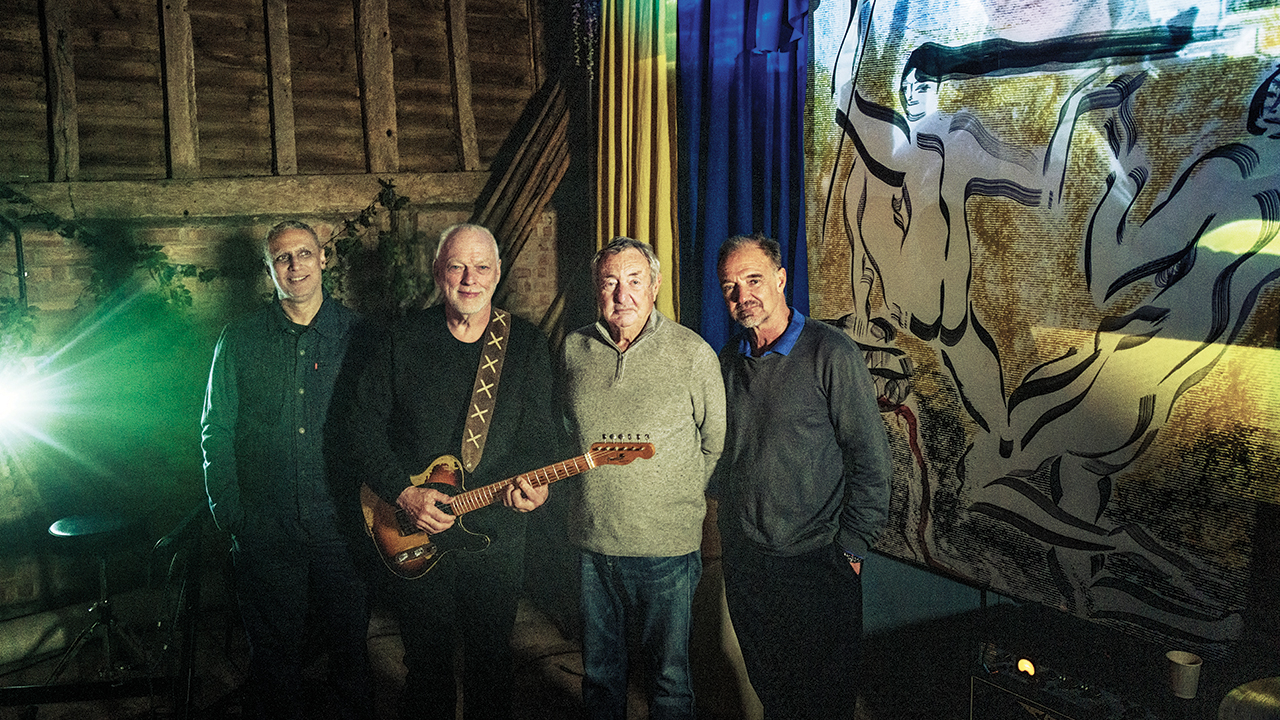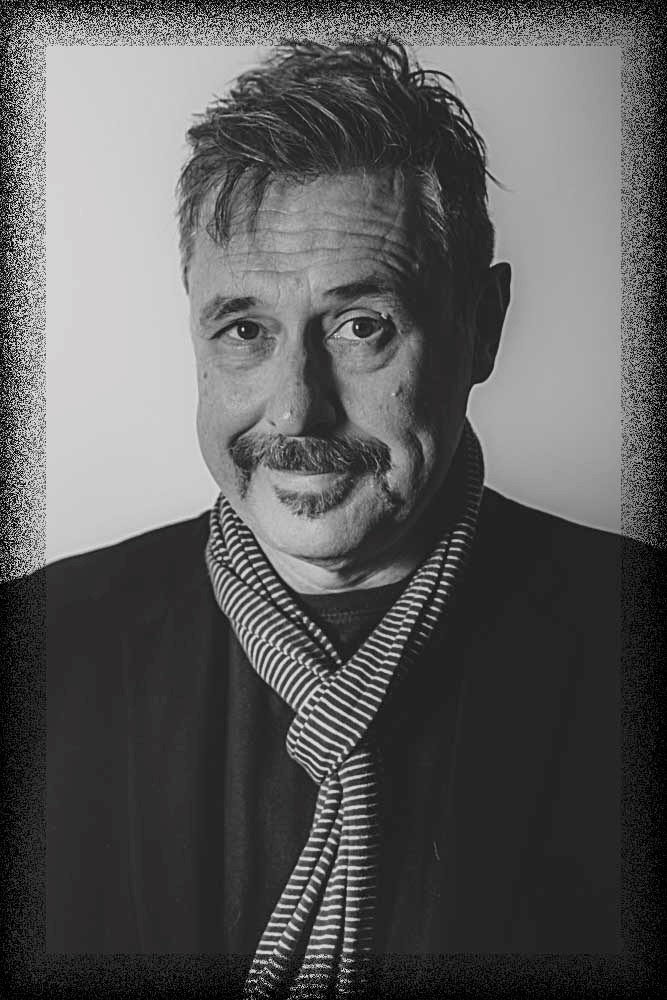In April 2022, Pink Floyd announced they were releasing their first new music since 1994’s The Division Bell. The single, Hey Hey, Rise Up, saw David Gilmour and Nick Mason reuniting to raise money for Ukraine Humanitarian Relief. But was the regrouping – which also included bassist Guy Pratt and Nitin Sawhney with a special guest appearance from BoomBox’s Andriy Khlyvnyuk – the shape of things to come? Or a one-off? Prog looks at one of the year’s biggest surprises.

In the very first Prog magazine, published in 2009, this writer was asked to “gaze into his crystal ball to see what the future holds for Floyd fans the world over”. The article, titled The Final Cut?, concluded with the summation that Pink Floyd’s “ownership of rock’s mystical high ground is forever assured… Their music still throws shapes and curves, hidden alleyways for an inquisitive mind to wander… With Pink Floyd, as with The Beatles, there will always be a considerable amount of interest in and scrutiny of what David Gilmour, Roger Waters and Nick Mason do… Whatever happens, Pink Floyd’s legend grows ever more mythical.”
In the intervening years, more mythical they became. Aside from the sundry reissues, exhibitions and solo albums, few would have foreseen a ‘new’ Pink Floyd album in 2014. The Endless River was a mixture of offcuts from The Division Bell and new material as a tribute to Richard Wright, very much a final word from the group. The praise for Mason’s drumming on that album, so often hidden in plain sight, brought about the unforeseen plot twist: he was to lead his own Pink Floyd, Nick Mason’s Saucerful Of Secrets, with Gary Kemp from Spandau Ballet and longtime Floyd bassist Guy Pratt, plus Lee Harris and Dom Beken. This seemed to underline that, as a collective, Pink Floyd had screamed their last scream.
So, imagine the astonishment when an announcement was made on April 7, 2022 that Pink Floyd would be releasing a brand-new track. Social media went into meltdown. What was it? Who was on it? By the way, which one’s Pink?

Hey Hey, Rise Up – the first completely new piece of recorded music from Floyd since 1994’s The Division Bell – was inspired by the Russian invasion of Ukraine by Vladimir Putin’s forces, which began on February 24, 2022. The idea came about when Gilmour saw Instagram footage of soldier Andriy Khlyvnyuk singing the first verse of the 1914 Ukrainian patriotic anthem Oh, The Red Viburnum In The Meadow, a capella, while standing in Sofiyskaya Square in Kyiv.
Yet Khlyvnyuk was not any rank-and-file soldier. Famous in his home country, the week before he had left his band, BoomBox, on an American tour and returned home to fight, joining the Ukrainian Territorial Defence Force. Gilmour had a connection with Khlyvnyuk, having performed live with BoomBox at Camden’s Koko in 2015 at Staging A Revolution: I’m With The Banned, part of the Belarus Free Theatre’s 10th anniversary celebration. Ironically, Khlyvnyuk had visa problems and couldn’t attend, so the rest of the group backed Gilmour and Jon Carin in a ramshackle but spirited set of In Any Tongue and the title track of Rattle That Lock alongside Astronomy Domine and Wish You Were Here.
In those desperate first few weeks of the Russian invasion, Khlyvnyuk’s spirit chimed with the times. Gilmour instinctively knew he wanted to raise money as quickly as possibly for the Ukraine Humanitarian Relief Fund.
Pink Floyd have always had a tremendous affinity with Eastern Europe; millions of fans listened to them, often illicitly, behind the Iron Curtain in the group’s heyday. Pink Floyd played Moscow in June 1989, and in 1990, erstwhile leader Roger Waters played The Wall in one of the largest concerts of all time in Berlin. Gilmour recorded his 2008 live album at the former Lenin shipyard in Gdańsk, the birthplace of Solidarno´sc (Solidarity), the first independent trade union in a Warszaw Pact country. Aside from an empathy with the people, a horror at the atrocities and an awareness of Khlyvnyuk, there was also another dimension for Gilmour: family.
“The practicalities of having an extended Ukrainian family is part of this,” Gilmour told Alexis Petridis at The Guardian. “My grandchildren are half-Ukrainian, my daughter-in-law Janina is Ukrainian – her grandmother was in Kharkiv until three weeks ago. She’s very old, disabled, in a wheelchair and has a carer, and Janina and her family managed to get her all the way across Ukraine to the Polish border and now they’ve managed to get her to Sweden, literally last week.”
With all these factors at play, Gilmour decided to set Khlyvnyuk’s words into
a newly composed song, which followed the original, yet added Floydian glacial sparkle. “As it’s a cappella, we can turn this in to something lovely,” Gilmour thought. “I started mapping the whole thing out, and then I thought that maybe ‘we’, the Pink Floyd ‘we’, should do this as a thing for Ukraine, for morale boosting, for peace, to show our anger at what’s been going on – a superpower invading a peaceful nation.”
Gilmour has always been very aware of the power of his brand and the magnitude of the Pink Floyd machine. Buoyed by the same notion Bob Geldof had when he knew that reuniting Gilmour’s group would elevate 2005’s Live 8 from being Just Another Charity Concert, Gilmour made some phone calls.
But who was the Pink Floyd that was coming back to life? Of course, the first call was made to Nick Mason, who agreed immediately, maintaining his 100 per cent record of being on every Pink Floyd release since 1967. Then Gilmour called Mason’s bassist, who also happens to have been Pink Floyd’s own since 1994, Guy Pratt. The surprise member was much-respected composer and producer Nitin Sawhney to take the place of Richard Wright. Gilmour described Sawhney as a “old friend and great keyboard player.” Gilmour spoke to Khlyvnyuk to get his permission to sample his vocal; Khlyvnyuk, who was in hospital after shrapnel from a mortar attack had become embedded in his face, agreed immediately.

So, on March 30, Pink Floyd Mk VI assembled in Gilmour’s barn in Sussex to record the track. Also present was Richard Wright’s daughter (and Pratt’s ex-wife), Gala. For this record alone, Andriy Khlyvnyuk was Pink, becoming the eighth lead vocalist on a Pink Floyd track after Syd Barrett, Roger Waters, Richard Wright, Nick Mason, David Gilmour, Clare Torry and Roy Harper.
On the same day, respected film director Mat Whitecross shot a video, interspersing the footage of the Russian invasion with the band performing in the barn, with the clip of Khlyvnyuk singing projected across the four musicians playing the song. Mason’s drumkit is decorated with a painting by Ukrainian artist Maria Primachenko.
Just over a week later, on April 8, Hey Hey, Rise Up – its title taken from an English translation of the last line of the song – was released digitally. Its cover utilised the group’s Gerald Scarfe-era logo with the Ukrainian colours underneath, and, as the Pink Floyd Instagram page shared: “a painting of the national flower of Ukraine, the sunflower, by the Cuban artist, Yosan Leon a direct reference to the woman who was seen around the world giving sunflower seeds to Russian soldiers and telling them to carry them in their pockets so that when they die, sunflowers will grow.”
The reaction was sudden and substantial. “I like that David Gilmour has deployed ‘the brand’ for a good cause,” Floyd author Mark Blake said. “God knows, he must have turned down millions in offers to tour as Pink Floyd again. So I think there’s something quite noble about making a song for charity instead.”
Longtime Gilmour associate (and co-lyricist on Poles Apart and Take It Back on The Division Bell), Nick Laird-Clowes was as amazed as the rest of us: “I was in Berlin and saw it had happened,” Laird-Clowes says. “I texted David immediately. He said, ‘You know, you’ve just got to do something. We all were feeling: what the fuck can we do?’ And so they thought of this.”
The fact Pink Floyd had returned was one thing; that the return had been kept a secret until its release, given the scale of modern social media, was another wonder. No one was really sniffing around the Floyd trail, especially after Mason’s success as a bandleader and, in the main group, seeming deadlocked over the postponed release of the 5.1 version of Animals. Which brings us to the Algie in the room, Roger Waters. The most vocally political of all the Floyd, the wires were buzzing with disdain regarding Waters’ non-involvement in the track. The internet was flooded with line-up bores sniffing disdainfully. Classic Rock and Prog writer Fraser Lewry captured the mood perfectly when he said, “when thousands have been killed and millions have fled their homes, moaning about the absence of a band member who left 37 years ago is churlish at best. At worst, it’s contemptuous of the suffering.” Waters, who’s written passionately about the invasion elsewhere, has been conspicuously silent about the release.
And the verdict on the song? It’s almost totally academic, but not without merit, far from it. It opens with a sample of the Veryovka Ukrainian Folk Choir singing Oh, The Red Viburnum In The Meadow before the recording of Khlyvnyuk kicks in with a sympathetic instrumental backing. “I think of it more as a vehicle for Khlyvnyuk’s lyrics and message than a Pink Floyd song,” Blake continues. “Saying that, it’s always good to hear David Gilmour playing some filthy rock’n’roll guitar. I’m getting Shine On You Crazy Diamond vibes around the one-and-a-half minute mark.”
That is true; the mid-tempo example of Meddle/Shine On Floyd is underlined by Gilmour’s searing solo and Mason’s unmistakable drum fill in the instrumental. “Nick is like no other drummer,” Gilmour told Rolling Stone. “It’s a wonderful thing for us to be together playing a song that means something fantastic.”
“It’s Pink Floyd if it’s me and Nick, and that is the biggest promotional vehicle; that is, as I said, the platform that I’ve been working on for my whole adult life, since I was 21. I wouldn’t do this with many more things, but it’s so vitally, vitally important that people understand what’s going on there and do everything within their power to change that situation,” Gilmour told The Guardian. “And the thought, also, that mine and Pink Floyd’s support of the Ukrainians could help boost morale in those areas: they need to know the whole world supports them.”
“I loved when David said, ‘Look, I’ve been working for this since I was 21,’” Nick Laird-Clowes adds. “‘So, I’m gonna use it [Pink Floyd] for this.’ I think he’s totally right. If you’re not using it for something like this, when are you going to use it?”
In mid-April, the digital-only release Hey Hey, Rise Up rested at No.49 in the UK Singles Chart. But it’s not going to end there: on May 16, a T-shirt and accessory range was launched, and it’s been announced that a physical vinyl edition will be released in September (intriguingly with a ‘reworked version’ of A Great Day For Freedom on the flip, with no further info at time of writing), ensuring funds will continue to stream into the Ukraine Humanitarian Relief Fund. Could it be time to complement all this with a live event? When Gilmour was asked by Britclip, he replied, “We haven’t even thought about doing live shows, I suppose it’s a possibility. I haven’t done one in such a long time, but who knows? I don’t know.”
Hey Hey, Rise Up is probably the last new current material that will ever be attached to the band’s name, and, if it is the end – let’s face it, we’ve been here at least twice before – the symmetry of closure with a lone non-album single takes us back to how the group began. It may not be a new Arnold Layne, but it does absolutely nothing to sully the group’s reputation, no more than The Endless River, or for some The Final Cut. Does long-term Floyd watcher Blake think it could affect the group’s legacy? “Not really, no. Again, I think there is something very dignified about ‘Pink Floyd’ breaking cover for a good cause – Live 8 in 2005 and now this.”
Nothing will ever detract from the work the group delivered in its first decade or so of existence; the legacy and reputation stands intact. With Hey Hey, Rise Up! the legend of Pink Floyd shines on.

